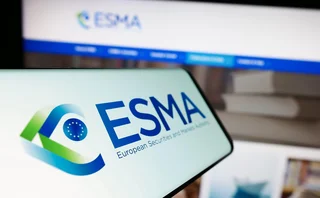
Credit demand and supply still falling in Europe
European banks are still tightening their lending conditions, and demand for credit continues to fall, according to the latest lending survey by the European Central Bank.
With the continent-wide recession now deeper than predicted, the recovery in the financial markets has not meant a return to high levels of lending, either to businesses or individuals, the ECB found. In a survey of 118 banks across the eurozone, the majority said that lending standards had tightened again in the second quarter of the year for business loans, as they had done in the three preceding quarters. But there was some evidence the trend was slowing from the peak of the crisis: a net 21% of banks said they saw credit standards tightening, compared with 43% in Q1 2009, 64% in Q4 2008 and 65% in Q3 2008. (The ECB defines net percentages as the percentage reporting tightening, less the percentage reporting relaxing standards).
Lending standards continued to tighten on household borrowers as well, the survey found, with a net 22% reporting tightening mortgage lending conditions, and 21% reporting tighter consumer credit conditions – though both percentages were lower than in Q1.
Reflecting the impact of the recession, demand for loans continued to fall, with a net 29% of banks reporting lower demand from businesses as the rate of fixed investment and merger activity fell. The ECB noted some firms were instead raising funds through issuing equity or debt securities, possibly reflecting better market conditions, but also decreasing demand for bank loans. However, demand for housing loans started to improve, with a net 4% of banks seeing rising demand.
In a report published yesterday, Credit Suisse pointed out that "credit cycles have tended to correlate tightly with lending standards, as the supply of credit is determined by the ability and willingness of banks to lend or by non-interest rate credit conditions that essentially cause a decrease in the overall supply of bank loans".
The availability of funds to banks has improved dramatically since the start of the year, due largely to the liquidity programmes of central banks, including the ECB: the benchmark three-month euro Libor interbank rate, after peaking at 5.36625% on October 10 2008, has fallen steeply to 0.87063% today. But this has not yet been matched by brighter news from the wider economy. In its most recent World Economic Outlook, published earlier this month, the International Monetary Fund revised down its forecasts for this year, predicting a 4.8% contraction in the euro area (down from 4.2%) and predicted the area would be slower to recover than other advanced economies.
See also: European banks report modest Q2, despite increased provisioning
Eurozone dips into deflation, but high inflation still a risk
BIS warns of "enormous risks to recovery"
Only users who have a paid subscription or are part of a corporate subscription are able to print or copy content.
To access these options, along with all other subscription benefits, please contact info@risk.net or view our subscription options here: http://subscriptions.risk.net/subscribe
You are currently unable to print this content. Please contact info@risk.net to find out more.
You are currently unable to copy this content. Please contact info@risk.net to find out more.
Copyright Infopro Digital Limited. All rights reserved.
As outlined in our terms and conditions, https://www.infopro-digital.com/terms-and-conditions/subscriptions/ (point 2.4), printing is limited to a single copy.
If you would like to purchase additional rights please email info@risk.net
Copyright Infopro Digital Limited. All rights reserved.
You may share this content using our article tools. As outlined in our terms and conditions, https://www.infopro-digital.com/terms-and-conditions/subscriptions/ (clause 2.4), an Authorised User may only make one copy of the materials for their own personal use. You must also comply with the restrictions in clause 2.5.
If you would like to purchase additional rights please email info@risk.net
More on Regulation
Review of 2025: It’s the end of the world, and it feels fine
Markets proved resilient as Trump redefined US policies – but questions are piling up about 2026 and beyond
Hong Kong derivatives regime could drive more offshore booking
Industry warns new capital requirements for securities firms are higher than other jurisdictions
Will Iosco’s guidance solve pre-hedging puzzle?
Buy-siders doubt consent requirement will remove long-standing concerns
Responsible AI is about payoffs as much as principles
How one firm cut loan processing times and improved fraud detection without compromising on governance
Could one-off loan losses at US regional banks become systemic?
Investors bet Zions, Western Alliance are isolated problems, but credit risk managers are nervous
SEC poised to approve expansion of CME-FICC cross-margining
Agency’s new division heads moving swiftly on applications related to US Treasury clearing
ECB bank supervisors want top-down stress test that bites
Proposal would simplify capital structure with something similar to US stress capital buffer
Clearing houses warn Esma margin rules will stifle innovation
Changes in model confidence levels could still trip supervisory threshold even after relaxation in final RTS







